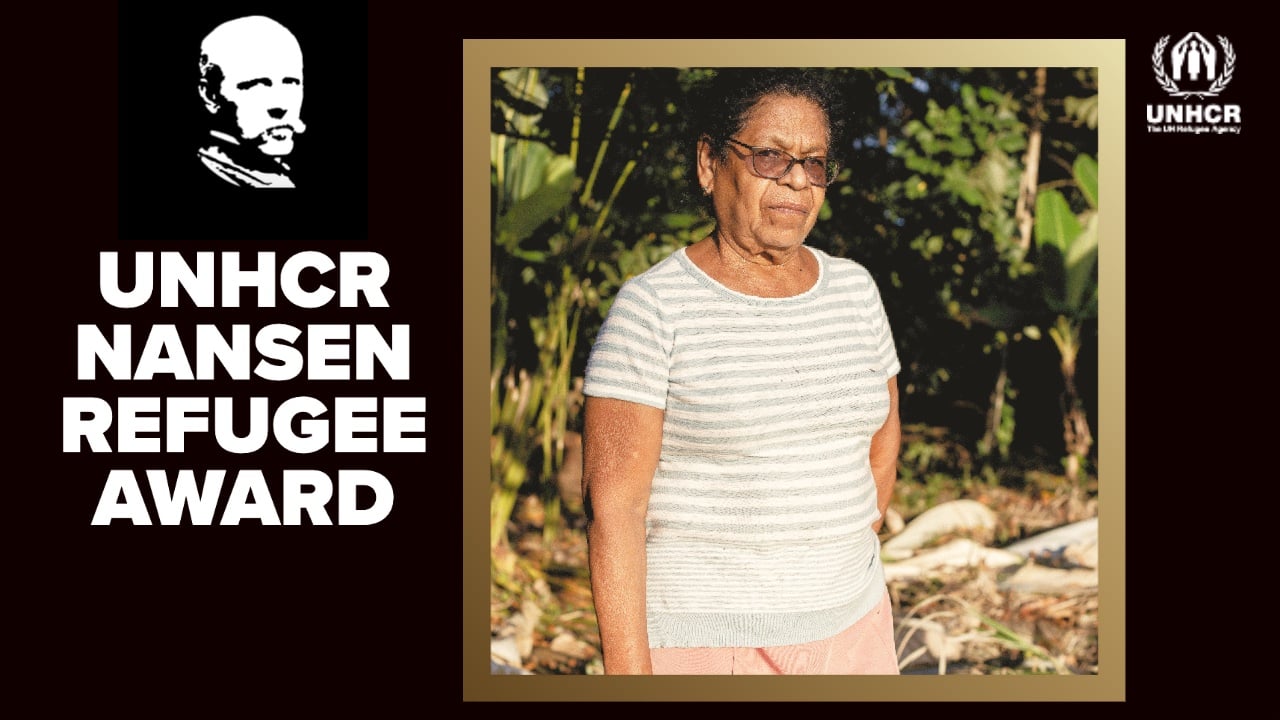16 Days of Activism: UNHCR chief pledges new initiatives to end violence against women
16 Days of Activism: UNHCR chief pledges new initiatives to end violence against women

GENEVA, November 25 (UNHCR) - UN High Commissioner for Refugees António Guterres on Friday reaffirmed his agency's commitment to the prevention of violence against displaced women and girls while stressing the scale of the problem and pledging a new initiative in 2012 to address it.
"We have a long way to go," he told staff gathered in the atrium of UNHCR's headquarters building in Geneva at the start of the annual 16 Days of Activism Against Gender Violence, an international campaign originating from the first Women's Global Leadership Institute in 1991.
In a separate message to mark the campaign, Guterres also outlined progress in several areas since UNHCR launched the High Commissioner's Five Commitments to Refugee Women in 2001, when the agency had only just issued its first guidance on combatting sexual and gender-based violence.
"Women were hardly represented in camp management. Registration, documentation and food distribution were not individual, but given to the head of household - usually a man. Sanitary materials were not part of the standard assistance package," he wrote, while adding: "We have come a long way since then, but our achievements against the Five Commitments also highlight how much remains to be done.
Last year, among other relevant statistics, 83 per cent of people of concern living in refugee camps who reported sexual and gender-based violence cases were referred for assistance. In urban settings, this was the case for 97 per cent of reported cases. Meanwhile, men and women were represented equally on one third of refugee camp committees; more than half of refugee women and girls received sanitary materials; and in the majority of refugee camps, women comprised at least half of the food distribution representatives.
"Hundreds of thousands of women are subjected to brutal acts of violence every year, and to help prevent this from happening must remain one of our highest priorities," the High Commissioner said. He told staff that special projects will be launched in 2012 to help prevent and respond to sexual and gender-based violence. "It's a corporate priority," he added.
"The 16 Days of Activism are an opportunity to underscore our commitment, but it is clear that our response - personal as much as collective - cannot be confined only to these 16 days," Guterres said.
UNHCR offices around are organizing activities to mark this year's campaign, whose theme is: "From Peace in the Home to Peace in the World." The focus will be on combatting violence against women and girls both outside and inside their homes, highlighting the positive role that men and boys can play in this endeavour.
Staff will also be doing their part to oppose violence against women through an interactive art activity, creating peace quilt homes. These will be constructed with individually-designed quilt squares depicting words and images that people will associate with the idea of peace in the home.
The 16 Days of Activism will run through to International Human Rights Day on December 10. As in past years, UNHCR will also be highlighting the work of the White Ribbon Campaign, an initiative begun by men to encourage their male peers to never commit, condone or remain silent about violence against women. People are invited to wear a white ribbon, signifying this pledge.








